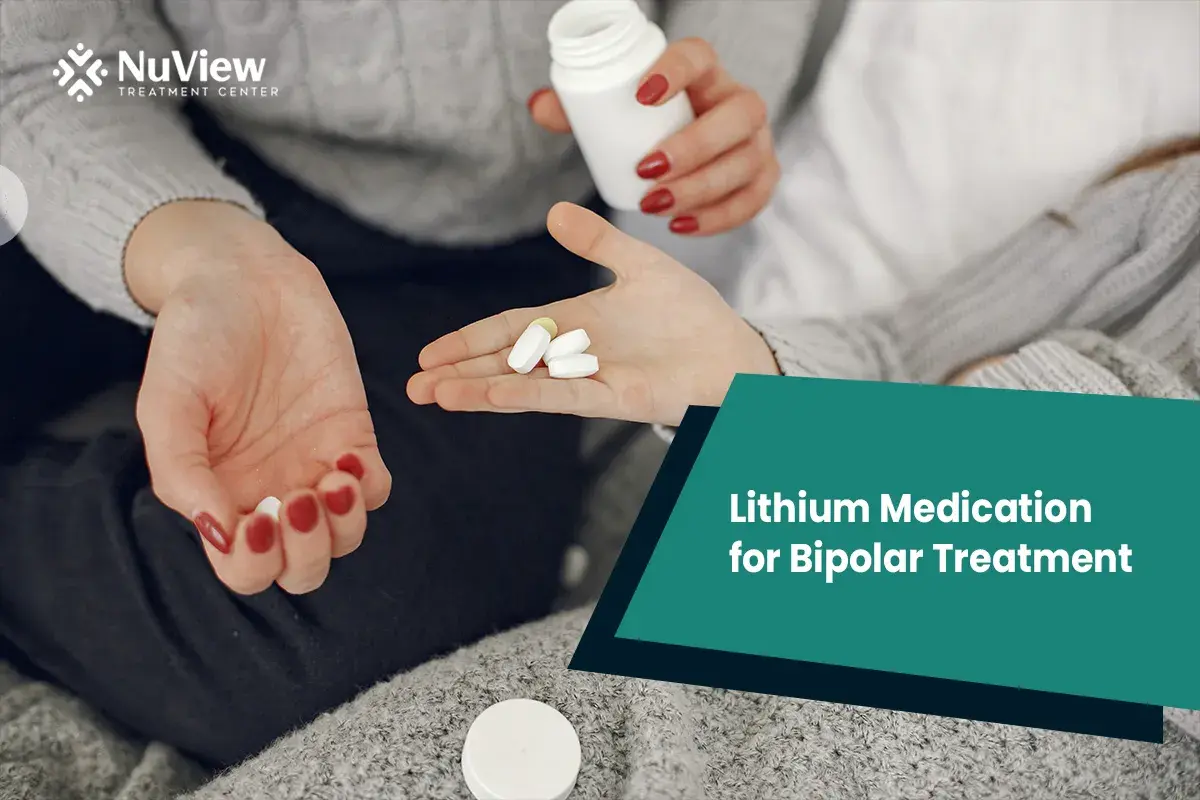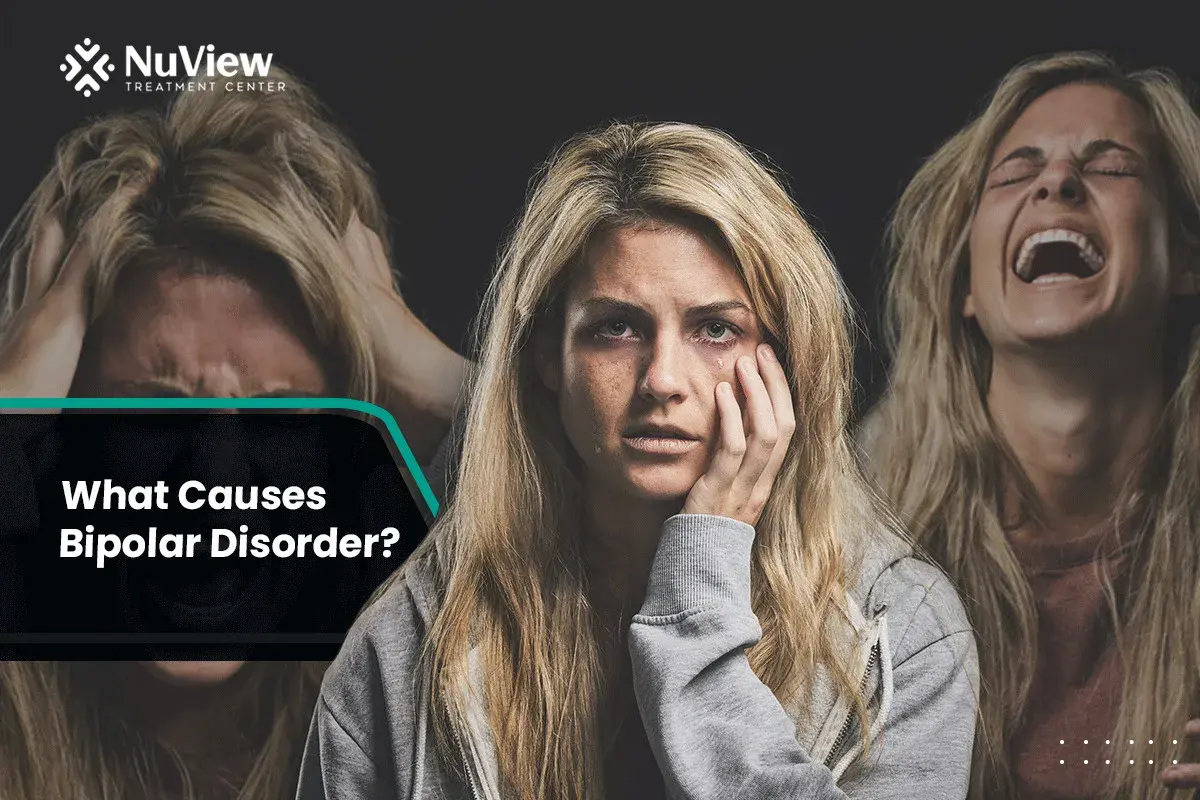Bipolar disorder is one of the most prevalent mood disorders in the world. It affects approximately 4.4% of adults in the United States and can significantly impact daily functioning and quality of life. While various treatment options are available, one commonly prescribed medication for bipolar disorder is lithium.
Although the success of lithium in managing bipolar disorder was first recorded in the 19th century, it wasn't until the 20th century that it became widely used as a treatment. It's still considered one of the most effective medications for this condition.
What Is Lithium?
Lithium is a medication commonly used as a mood stabilizer in treating mental conditions like bipolar disorder. It's often necessary to use it over a long period, and abruptly stopping it is not advised without consulting a doctor.
Common short-term side effects include nausea, diarrhea, muscle weakness, and feeling dazed. A notable long-term side effect can be weight gain. The dosage of lithium is personalized and requires regular blood tests to ensure the correct level in the body.
It’s important to inform all your healthcare providers, including your pharmacist, if you're taking lithium to avoid any potential interactions with other medications.
What Are the Different Forms of Lithium Available?
Lithium is available in different forms, including immediate-release tablets, extended-release tablets, and capsules. Immediate-release lithium is typically taken two to three times daily, while extended-release versions are usually taken once daily. The choice of form will depend on the individual's needs.
Lithium For Bipolar Disorder
Lithium is widely regarded as a first-choice treatment for bipolar disorder due to its effectiveness in managing acute and long-term symptoms. It is particularly beneficial in reducing the frequency of mood episodes and minimizing the risk of recurrence. Additionally, lithium offers neuroprotective effects and may lower the risk of dementia.
The medication is generally safe and effective for various age groups, including adolescents and the elderly, although dosages may need adjustment based on factors like age and physical health. Monitoring for drug interactions is crucial, especially with medications that affect kidney function, as lithium is primarily eliminated through the kidneys. It's important to remember that lithium therapy often requires regular blood monitoring to ensure safe and effective levels in the body
Lithium Side Effects Bipolar
- Lithium, used for treating bipolar disorder, can have several side effects:
- Common short-term effects: Nausea, diarrhea, muscle weakness, dazed feeling.
- Long-term effects: Weight gain.
- Need for regular blood monitoring to ensure appropriate lithium levels.
- Dosage adjustments may be necessary for different individuals.
- Risk of dehydration and maintaining a stable salt intake is crucial.
- Potential impact on kidney and thyroid function.
- Possible interaction with other medications, especially those affecting kidney function.
- Increased thirst and increased frequency of urination.
Get Started With Nuview Treatment Center
Our dedicated professional staff is here to guide you or your loved one on the journey to lasting recovery, offering support every step of the way.
How Does Lithium Work For Bipolar?
Lithium works as a mood stabilizer in bipolar disorder by helping to balance the neurotransmitters in the brain. It is thought to strengthen nerve cell connections in brain regions involved in regulating mood, thinking, and behavior. This leads to a reduction in the severity and frequency of mania episodes and helps prevent the recurrence of depressive episodes.
By stabilizing mood swings, lithium aids in managing the extreme highs and lows associated with bipolar disorder, contributing to a more balanced emotional state
What Are the Benefits of Using Lithium for Bipolar Treatment?
Lithium has been used for decades as a first-line treatment option for bipolar disorder. This medication is known to stabilize the mood of those with this mental health condition.
Mood Stabilization
The primary benefit of using lithium for bipolar treatment is its ability to stabilize mood. This means that it can help to regulate and balance the intense highs (mania) and lows (depression) experienced by individuals with bipolar disorder. This is achieved through its effect on neurotransmitters in the brain, specifically serotonin and norepinephrine, which play a role in mood regulation.
Reduced Risk of Relapse
Lithium is believed to significantly reduce the risk of relapse in individuals with bipolar disorder. This is important because bipolar disorder is a chronic and recurrent condition, meaning that without proper treatment, symptoms are likely to return.
Improved Quality of Life
In addition to mood stabilization and reduced risk of relapse, lithium for bipolar treatment has also been linked to improved quality of life. This medication can help individuals with bipolar disorder manage their symptoms, allowing them to engage in daily activities, maintain relationships, and pursue personal goals without the interference of extreme mood swings. It can also improve overall functioning and well-being.
How Effective Is Lithium in Controlling Manic and Depressive Episodes?
Lithium effectively controls both manic and depressive episodes in individuals with bipolar disorder. It's often considered the gold standard treatment for mania and hypomania. It may also be prescribed as an add-on medication for depression when other treatments have failed.
Are There Long-Term Benefits?
Using lithium for bipolar treatment has long-term benefits beyond symptom management. It can help prevent cognitive decline associated with bipolar disorder and may even slow down brain degeneration. Reducing the frequency and intensity of mood episodes can also improve social and occupational functioning in the long run.
Get Started With Nuview Treatment Center
What Are the Risks of Lithium?
As with any medication, there are potential risks associated with using lithium for bipolar treatment. It's important to discuss these with a physician before starting this medication.
- Impact on kidney function, requiring regular monitoring.
- Possible thyroid dysfunction, potentially leading to hypothyroidism.
- Risk of lithium toxicity, especially if not properly monitored.
- Impact on fluid and electrolyte balance, leading to dehydration or imbalance.
- Interaction with other medications, particularly those affecting kidney function.
- Potential for weight gain over long-term use.
- Gastrointestinal side effects like nausea and diarrhea.
- Need for careful monitoring during pregnancy and breastfeeding.
What Are the Signs of Lithium Toxicity?
Signs of lithium toxicity can range from mild to severe and may include:
Nausea and vomiting
Diarrhea
Slurred speech
Blurred vision
Confusion
Tremors or shaking
Loss of coordination
Muscle weakness
If you experience these symptoms, seeking medical attention immediately is important.
How Does Lithium Affect Pregnancy and Childbirth?
Pregnancy and childbirth can be challenging for individuals with bipolar disorder, as hormonal changes can potentially trigger mood episodes. Lithium is generally not recommended during pregnancy due to potential risks to the developing fetus. However, in some cases, it may be necessary for an individual's mental health to continue taking lithium during pregnancy.
What Are the Risks to the Unborn Child?
There is a small risk of congenital disabilities and other complications associated with lithium use during pregnancy. These risks may be higher in the first trimester when the fetus is most vulnerable to potential teratogenic effects.
Are There Long-Term Developmental Concerns?
While there is some evidence that lithium exposure during pregnancy may have long-term effects on the child's cognitive and behavioral development, the extent of these effects is still uncertain. More research is needed to fully understand the potential impact of lithium use during pregnancy on a child's long-term development.
Does Lithium Treatment Impact Physical Health Apart from Mental Health?
Yes, lithium treatment can have various impacts on an individual's physical health. Some potential concerns include:
Kidney function: Long-term use of lithium may impair kidney function and increase the risk of developing chronic kidney disease.
Thyroid function: Lithium may also impact thyroid function, potentially leading to hypothyroidism or hyperthyroidism.
Weight gain: Some individuals may experience weight gain as a side effect of lithium, which can negatively affect overall physical health.
It's crucial for individuals taking lithium to closely monitor their physical health and communicate any concerns with their healthcare provider. Regular blood tests and check-ups may be necessary to ensure any potential side effects are caught and managed early on.
Finding the Right Treatment Center
The most important thing in bipolar disorder is to find help. Finding the right treatment center for any medical condition, including mental health and substance abuse issues, is of paramount importance for several reasons:
Personalized Care: The right treatment center can provide individualized treatment plans tailored to each patient's needs. This ensures you receive the most effective and appropriate care for your situation.
Expertise and Specialization: Quality treatment centers often have specialized staff and resources dedicated to a particular condition or type of treatment, increasing the likelihood of successful outcomes.
Evidence-Based Approaches: Reputable treatment centers rely on evidence-based practices and therapies, which have been rigorously tested and proven effective. This results in more reliable and successful treatment.
Comprehensive Services: The right treatment center offers a range of services that may include medical, psychological, and holistic therapies. This holistic approach addresses the physical, mental, and emotional aspects of a patient's well-being.
Safe and Supportive Environment: A proper treatment center provides a safe and supportive environment, free from negative influences and triggers. This helps individuals focus on recovery and healing.
Access to Medical Professionals: The right facility typically has access to a team of qualified medical professionals, therapists, and counselors who can provide expert guidance and support during your treatment journey.
Getting Help at NuView Treatment Center
At NuView Treatment Center, we have a profound understanding of the distinctive challenges posed by Bipolar Disorder.
Our team is highly trained in clinical matters and deeply compassionate, dedicated to assisting you regain control over your life.
Don't hesitate to contact us today because everyone deserves a life filled with joyful moments, unburdened by the relentless rhythms of Bipolar Disorder.
People Also Search:
What Is Bipolar Mania | Is Bipolar Disorder Curable | Differences Between Bipolar Disorder And Schizophrenia | Bipolar Disorder Saying Hurtful Things | Borderline Personality Disorder vs Bipolar | Rapid Cycling Bipolar Disorder | Bipolar vs Adhd | Trileptal Bipolar | Bipolar Disorder Medication | How A Person With Bipolar Thinks | How To Deal With Someone Who Is Bipolar And Angry | Bipolar Disorder With Psychotic Features | Bipolar Types
- What Is Lithium?
- What Are the Different Forms of Lithium Available?
- Lithium For Bipolar Disorder
- Lithium Side Effects Bipolar
- How Does Lithium Work For Bipolar?
- What Are the Benefits of Using Lithium for Bipolar Treatment?
- How Effective Is Lithium in Controlling Manic and Depressive Episodes?
- Are There Long-Term Benefits?
- What Are the Risks of Lithium?
- What Are the Signs of Lithium Toxicity?
- How Does Lithium Affect Pregnancy and Childbirth?
- Does Lithium Treatment Impact Physical Health Apart from Mental Health?
- Finding the Right Treatment Center
- Getting Help at NuView Treatment Center
- What Is Lithium?
- What Are the Different Forms of Lithium Available?
- Lithium For Bipolar Disorder
- Lithium Side Effects Bipolar
- How Does Lithium Work For Bipolar?
- What Are the Benefits of Using Lithium for Bipolar Treatment?
- How Effective Is Lithium in Controlling Manic and Depressive Episodes?
- Are There Long-Term Benefits?
- What Are the Risks of Lithium?
- What Are the Signs of Lithium Toxicity?
- How Does Lithium Affect Pregnancy and Childbirth?
- Does Lithium Treatment Impact Physical Health Apart from Mental Health?
- Finding the Right Treatment Center
- Getting Help at NuView Treatment Center
Get Help Today!
- Malhi, G. S., Tanious, M., Das, P., Coulston, C. M., & Berk, M. (2013). Potential mechanisms of action of lithium in bipular disorder. Current understanding. CNS drugs, 27(2), 135–153. https://doi.org/10.1007/s40263-013-0039-0
- Kamal, Z. M., Dutta, S., Rahman, S., Etando, A., Hasan, E., Nahar, S. N., Wan Ahmad Fakuradzi, W. F. S., Sinha, S., Haque, M., & Ahmad, R. (2022). Therapeutic Application of Lithium in Bipular Disorders: A Brief Review. Cureus, 14(9), e29332. https://doi.org/10.7759/cureus.29332
- Chokhawala K, Lee S, Saadabadi A. Lithium. [Updated 2023 Feb 26]. In: StatPearls [Internet]. Treasure Island (FL): StatPearls Publishing; 2023 Jan-. Available from: https://www.ncbi.nlm.nih.gov/books/NBK519062/
- Hedya SA, Avula A, Swoboda HD. Lithium Toxicity. [Updated 2023 Jun 26]. In: StatPearls [Internet]. Treasure Island (FL): StatPearls Publishing; 2023 Jan-. Available from: https://www.ncbi.nlm.nih.gov/books/NBK499992/
Everyone is Welcome Here and We All Have Your Back
Your healing journey deserves a personalized approach. At NuView, we integrate expertise in behavioral therapy, mental health, and substance use treatment to create a customized recovery plan tailored to your unique needs.
Connect with our Admissions Specialists today.







Written By
Dr. Ryan Peterson